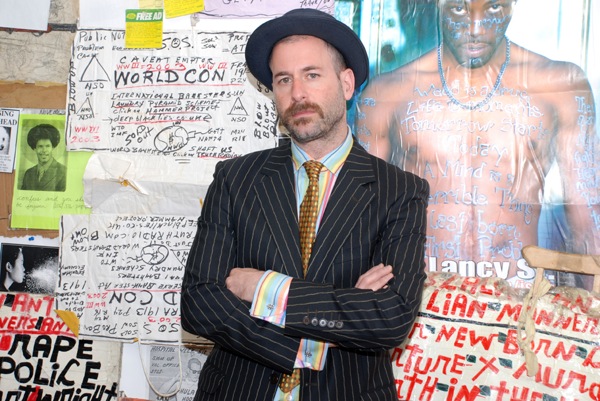Kenneth Goldsmith: What Is Conceptual Writing?
It started with a simple question, what is conceptual writing?
See full interview here:
Katherine Elaine Sanders: Can you discuss how Conceptual Writing began?
Kenneth Goldsmith: It began in 1999 in Buffalo after I gave a reading there and Christian Bök and Darren Wershler drove down from Toronto to see me read. They were Canadian pataphysicists who were involved with concrete and sound poetry, while I was coming out of a text art tradition, but we all saw our respective paths as dead ends. So, we blended these obsessions to come up with a new way of writing just as the Internet was emerging. These strategies as applied to the digital writing environment made sense to us and continue to even more a decade later as the web has evolved.
KES: Can you explain why you think non-conceptual poetry is dead and how conceptual writing breathes new life into that space—or is it an entirely new space?
KG: The poet David Antin sums it up:
“. . . i had always had mixed feelings
about being considered a poet if robert lowell is a
poet i dont want to be a poet if robert frost was a
poet i dont want to be a poet if socrates was a poet
ill consider it”
We’re uncreative. You might ask, what’s wrong with creativity? “I mean, we can always use more creativity.” “The world needs to become a more creative place.” “If only individuals could express themselves creatively, they’d be freer, happier.” “I’m a strong believer in the therapeutic value of creative pursuits.” “To be creative, relax, and let your mind go to work, otherwise the result is either a copy of something you did before or reads like an army manual.” “I don’t follow any system. All the laws you can lay down are only so many props to be cast aside when the hour of creation arrives.” “An original writer is not one who imitates nobody, but one whom nobody can imitate.”
When our notions of what is considered creative became this hackneyed, this scripted, this sentimental, this debased, this romanticized… this uncreative, it’s time to run in the opposite direction. Do we really need another “creative” poem about the way the sunlight is hitting your writing table? No. Or another “creative” work of fiction that tracks the magnificent rise and the even more spectacular fall? Absolutely not.

